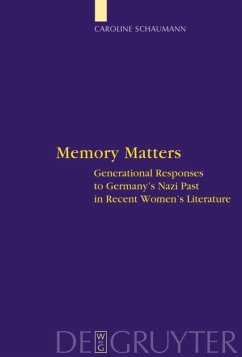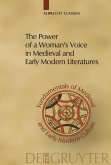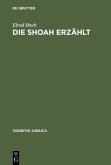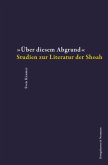Memory Matters juxtaposes in tripartite structure texts by a child of German bystanders (Wolf), an Austrian-Jewish child-survivor (Klüger), a daughter of Jewish emigres (Honigmann), a daughter of an officer involved in the German resistance (Bruhns), a granddaughter of a baptized Polish Jew (Maron), and a granddaughter of German refuges from East Prussia (Dückers). Placed outside of the distorting victim-perpetrator, Jewish-German, man-woman, and war-postwar binary, it becomes visible that the texts neither complete nor contradict each other, but respond to one another by means of inspiration, reverberation, refraction, incongruity, and ambiguity. Focusing on genealogies of women, the book delineates a different cultural memory than the counting of (male-inflected) generations and a male-dominated Holocaust and postwar literature canon. It examines intergenerational conflicts and the negotiation of memories against the backdrop of a complicated mother-daughter relationship that follows unpredictable patterns and provokes both discord and empathy. Schaumannâ??s approach questions the assumption that German-gentile and German-Jewish postwar experiences are necessarily diametrically opposed (i.e. respond to a â??negative symbiosisâ?) and uncovers intersections and continuities in addition to conflicts.
"Highly recommended." M. Shafi in: Choice 2/2009
"Memory Matters constitutes a major contribution to a shift in critical discourses regarding (post)memories of Nazi Germany - one that carefully examines 'Memory contests' (Fuchs) in contemporary German literature while questioning familiar oppositions and assumptions established by previous generations of scholars and writers."
Friederike Eigler in: Zeitschrift für Deutsche Philologie 2/2010
"[...] the book is a valuable contribution to debates about the Holocaust, and Schaumann ensures through her very persuasively crafted discussion of new complexities and ambiguities that these debates are not mainstreamed and thus trivialized."
Kamakshi P. Murti in: German Studies Review 1/2010
"Highly recommended."
M. Shafi in: Choice 2/2009
"Memory Matters constitutes a major contribution to a shift in critical discourses regarding (post)memories of Nazi Germany - one that carefully examines 'Memory contests' (Fuchs) in contemporary German literature while questioning familiar oppositions and assumptions established by previous generations of scholars and writers."Friederike Eigler in: Zeitschrift für Deutsche Philologie 2/2010 "[...] the book is a valuable contribution to debates about the Holocaust, and Schaumann ensures through her very persuasively crafted discussion of new complexities and ambiguities that these debates are not mainstreamed and thus trivialized."Kamakshi P. Murti in: German Studies Review 1/2010 "Highly recommended."M. Shafi in: Choice 2/2009
Friederike Eigler in: Zeitschrift für Deutsche Philologie 2/2010
"[...] the book is a valuable contribution to debates about the Holocaust, and Schaumann ensures through her very persuasively crafted discussion of new complexities and ambiguities that these debates are not mainstreamed and thus trivialized."
Kamakshi P. Murti in: German Studies Review 1/2010
"Highly recommended."
M. Shafi in: Choice 2/2009
"Memory Matters constitutes a major contribution to a shift in critical discourses regarding (post)memories of Nazi Germany - one that carefully examines 'Memory contests' (Fuchs) in contemporary German literature while questioning familiar oppositions and assumptions established by previous generations of scholars and writers."Friederike Eigler in: Zeitschrift für Deutsche Philologie 2/2010 "[...] the book is a valuable contribution to debates about the Holocaust, and Schaumann ensures through her very persuasively crafted discussion of new complexities and ambiguities that these debates are not mainstreamed and thus trivialized."Kamakshi P. Murti in: German Studies Review 1/2010 "Highly recommended."M. Shafi in: Choice 2/2009
"Memory Matters constitutes a major contribution to a shift in critical discourses regarding (post)memories of Nazi Germany - one that carefully examines 'Memory contests' (Fuchs) in contemporary German literature while questioning familiar oppositions and assumptions established by previous generations of scholars and writers."Friederike Eigler in: Zeitschrift für Deutsche Philologie 2/2010 "[...] the book is a valuable contribution to debates about the Holocaust, and Schaumann ensures through her very persuasively crafted discussion of new complexities and ambiguities that these debates are not mainstreamed and thus trivialized."Kamakshi P. Murti in: German Studies Review 1/2010 "Highly recommended."M. Shafi in: Choice 2/2009
"Memory Matters constitutes a major contribution to a shift in critical discourses regarding (post)memories of Nazi Germany - one that carefully examines 'Memory contests' (Fuchs) in contemporary German literature while questioning familiar oppositions and assumptions established by previous generations of scholars and writers."
Friederike Eigler in: Zeitschrift für Deutsche Philologie 2/2010
"[...] the book is a valuable contribution to debates about the Holocaust, and Schaumann ensures through her very persuasively crafted discussion of new complexities and ambiguities that these debates are not mainstreamed and thus trivialized."
Kamakshi P. Murti in: German Studies Review 1/2010
"Highly recommended."
M. Shafi in: Choice 2/2009
"Memory Matters constitutes a major contribution to a shift in critical discourses regarding (post)memories of Nazi Germany - one that carefully examines 'Memory contests' (Fuchs) in contemporary German literature while questioning familiar oppositions and assumptions established by previous generations of scholars and writers."
Friederike Eigler in: Zeitschrift für Deutsche Philologie 2/2010
"[...] the book is a valuable contribution to debates about the Holocaust, and Schaumann ensures through her very persuasively crafted discussion of new complexities and ambiguities that these debates are not mainstreamed and thus trivialized."
Kamakshi P. Murti in: German Studies Review 1/2010
"Highly recommended."
M. Shafi in: Choice 2/2009








